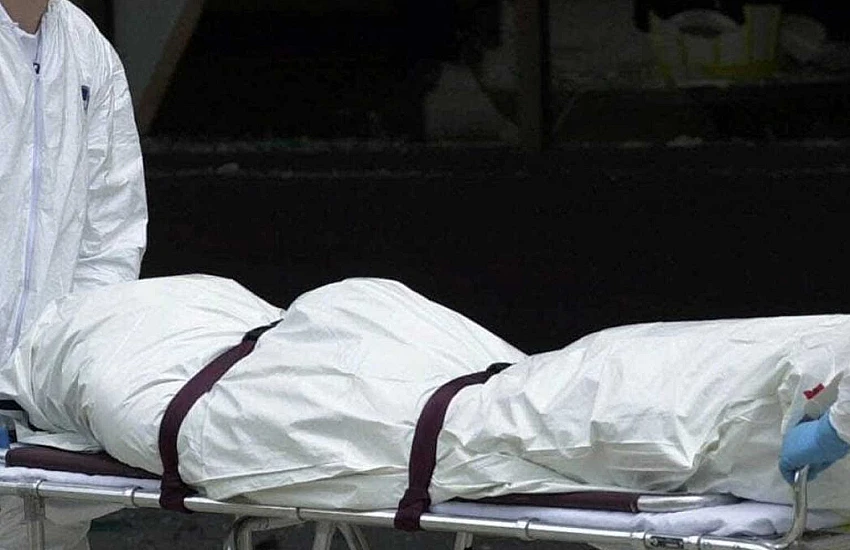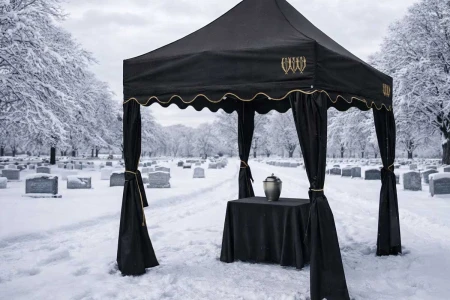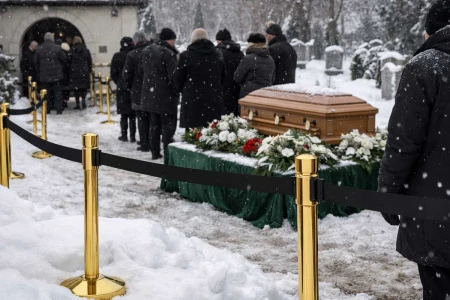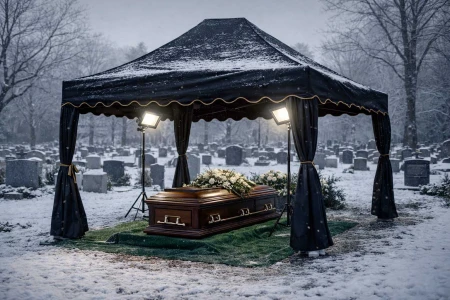Table of Contents
- The Role of Body Bags in the Modern Funeral Industry
- Technical Aspects of Funeral Bag Construction
- International Standards in Body Bag Design
- Application in Various Medical Environments
- Funeral Home Equipment – Comprehensive Solutions
- Psychological and Cultural Aspects
- Legal Regulations and Safety Standards
- Technological Innovations in the Funeral Industry
- Supplier Selection – Key Criteria
- Professional Solutions for International Organizations
- Maintenance and Care of Funeral Equipment
- Ecological Aspects and Sustainable Development
- FAQ - Frequently Asked Questions
- Summary
In the world of funeral and medical services, there are equipment elements that, although they remain in the shadows, play a fundamental role in maintaining the dignity of the deceased and ensuring the safety of workers. Body bags, also known as cadaver bags, constitute one of the most important elements of professional equipment for funeral homes, hospitals, mortuaries, and humanitarian organizations operating on the international stage.
The Role of Body Bags in the Modern Funeral Industry
The contemporary funeral industry places increasingly high demands on professionals regarding hygienic standards, safety, and dignified treatment of the deceased. In this context, body bags cease to be merely a practical tool, becoming a symbol of respect and professionalism that characterizes reputable funeral homes.
The significance of these funeral accessories extends far beyond their basic transport function. They are an integral part of the care process for the deceased, which begins at the moment of death determination and ends with the transfer of the body to its final resting place. Each stage of this process requires the use of appropriate protective measures that guarantee the maintenance of hygiene, biological safety, and privacy of the deceased.
Professional body bags used in funeral homes must meet rigorous quality standards. Their design takes into account not only practical aspects but also the psychological needs of the deceased's families and funeral industry workers. Solid construction, hermetic closure, and appropriate presentation are elements that together create an atmosphere of calm and trust in such difficult moments.

Technical Aspects of Funeral Bag Construction
Modern body bags are the result of advanced research into materials and ergonomics. Funeral accessories manufacturers invest significant resources in developing technologies that allow for the creation of products combining mechanical strength with delicacy in handling.
The main material used to produce high-quality body bags is specially developed film with increased thickness and puncture resistance. This material must be elastic enough to enable easy placement of the body, yet strong enough to withstand the loads associated with transport and handling. Additionally, the bag surface is often treated with special antibacterial coatings that minimize the risk of microorganism development.
Closure systems for funeral bags have evolved significantly over recent years. Traditional zippers have given way to advanced hermetic closure systems that guarantee complete sealing. Some models are equipped with double safety locks that prevent accidental opening during transport. Ergonomic handles distributed along the bag enable safe lifting by several people simultaneously.
Contemporary funeral accessories in this category often also contain identification elements such as special pockets for documents or labels. These solutions significantly simplify the process of identifying the deceased and documenting their movement between different institutions.
International Standards in Body Bag Design
The globalization of funeral services and the increase in crisis situations requiring international cooperation have led to the establishment of uniform standards for body bags. International organizations such as the World Health Organization and the International Committee of the Red Cross have developed detailed guidelines specifying minimum requirements for this type of equipment.
These standards cover not only technical parameters but also cultural and religious aspects. In different parts of the world, there are different traditions regarding the handling of corpses, which must be considered in designing universal solutions. Professional funeral bags produced according to international norms often contain elements allowing adaptation to local customs and regulations.
International certification of funeral accessories requires conducting a series of tests checking resistance to various climatic conditions, mechanical strength, and compatibility with different transport methods. Products meeting these requirements can be used by humanitarian organizations operating in crisis situations, where equipment reliability can be of crucial importance.
Application in Various Medical Environments
Hospitals, mortuaries, and medical facilities constitute the first link in the chain of care for the deceased. In these institutions, body bags play a particularly important role because they must meet the requirements of sterility and biological safety characteristic of medical environments.
In mortuaries, where autopsies and medical examinations are performed, body bags must be resistant to contact with various chemical and biological substances. Special models intended for this type of application are equipped with additional protective layers and ventilation systems enabling the outflow of gases produced during decomposition.
Intensive care units and other hospital departments require bags with special aesthetic properties. In an environment where medical workers and families of the deceased experience intense emotions, the appearance and presentation method of funeral accessories can have a significant impact on the psychological comfort of all involved persons.
Mobile medical units and ambulances use compact versions of body bags that can be easily stored and quickly deployed in emergency situations. These specialized models are characterized by increased resistance to weather conditions and the ability to fold to minimal dimensions.

Funeral Home Equipment – Comprehensive Solutions
Modern funeral homes treat their equipment as an investment in building client trust and raising service standards. In this context, body bags constitute only one element of a broader system of funeral accessories that also includes transport trolleys, preparation tables, cooling systems, and specialized tools for body preservation.
Professional funeral establishments often have different types of body bags adapted to specific needs. Standard models are used for routine transport, while special hermetic versions are used in cases requiring special precautions. Luxury variants, made from materials with enhanced aesthetic qualities, are intended for ceremonies of special character.
The integration of various funeral equipment elements requires thoughtful organization of space and logistics. Body bags must be easily accessible to staff but simultaneously stored in a discreet and hygienic manner. Many funeral homes invest in specialized storage systems that enable organized storage of different types of accessories.
Psychological and Cultural Aspects
The funeral industry carries a special responsibility for considering the emotional and cultural needs of the deceased's families. The choice of appropriate body bags can have a significant impact on how loved ones perceive the quality of care for their deceased.
Different cultures and religions have different approaches to handling corpses. While in some traditions the speed of the funeral process is of key importance, others require a period of vigil with the deceased. These diverse needs must be considered in the design and use of funeral accessories.
Funeral home personnel must be appropriately trained in culturally sensitive use of funeral bags. This includes not only technical aspects of their application but also communication with families and adaptation of procedures to individual client needs.
Contemporary trends in the funeral industry emphasize the importance of personalization and individual approach to each case. Some funeral accessories manufacturers offer the possibility of personalizing body bags through the addition of decorative elements or inscriptions commemorating the deceased.
Legal Regulations and Safety Standards
The funeral industry is subject to strict legal regulation that also includes requirements for body bags. These regulations differ between countries but generally focus on ensuring public health safety and environmental protection.
In the European Union, body bags must meet standards specified in the directive on medical devices. This requires conducting detailed biocompatibility tests and risk assessment associated with their use. Manufacturers must also document the entire production process and ensure the ability to trace the origin of each product.
Regulations concerning the transport of corpses across state borders impose additional requirements on body bags used in international transport. They must be marked with special labels and meet hermeticity standards specified by aviation and railway organizations.
Funeral homes are obligated to maintain documentation regarding the use of funeral bags. This includes recording serial numbers, dates of use, and disposal methods. These requirements mean that professional facilities invest in equipment management systems that enable effective tracking of funeral accessories.
Technological Innovations in the Funeral Industry
The development of material technologies and growing ecological awareness drive innovations in the field of body bags. Funeral accessories manufacturers are experimenting with new biodegradable materials that may constitute an alternative to traditional plastic films.
Intelligent body bags equipped with temperature and humidity sensors enable monitoring of storage conditions for the deceased. These advanced solutions find particular application in large funeral homes and medical institutions, where tracking environmental parameters is of crucial importance for service quality.
RFID systems integrated with funeral bags revolutionize the way funeral homes manage their inventory and track the movement of deceased individuals. These technologies reduce the risk of identification errors and streamline administrative processes.
Research into new methods of antibacterial surface treatment has resulted in the development of long-lasting coatings. These innovative solutions significantly extend the period during which body bags maintain their hygienic properties.

Supplier Selection – Key Criteria
A funeral home making a decision to purchase body bags must consider a range of factors beyond product price. Supplier credibility, customer service quality, and product availability in emergency situations are elements of key importance for the smooth functioning of a funeral facility.
Reputable suppliers of funeral accessories offer not only high-quality products but also comprehensive technical support and staff training. These additional services can significantly impact the efficiency of equipment use and the quality of funeral services provided.
Flexibility regarding order sizes and delivery times is of particular importance for smaller funeral homes that do not have large warehouses. Professional suppliers offer logistical solutions adapted to the specifics of the funeral industry, taking into account demand unpredictability and delivery urgency.
Certification and quality documentation provided by the manufacturer form the basis for assessing product compliance with industry standards. Funeral homes should require suppliers to present complete documentation confirming compliance with appropriate norms and regulations.
Professional Solutions for International Organizations
Humanitarian organizations and international rescue services operating in crisis situations have special requirements for body bags. Products intended for this type of application must be ready for immediate use in various climatic and logistical conditions.
Mobility and compactness are key features of body bags intended for international organizations. The ability to quickly unfold and fold a bag can be critically important in situations where every minute matters. Special packaging systems enable placement of a significant number of bags in limited transport space.
International standardization of funeral accessories used by humanitarian organizations enables effective coordination of actions between different agencies. Uniform procedures and compatible equipment significantly simplify the logistics of rescue operations.
Training of international organization personnel includes specialized procedures for using funeral bags in difficult conditions. These programs take into account not only technical aspects but also cultural and psychological aspects of working with deceased bodies in crisis situations.
Maintenance and Care of Funeral Equipment
Professional body bags, although designed as single-use products, require appropriate storage and handling to maintain their properties. Funeral homes must develop storage procedures that will ensure long-term product quality and easy access in emergency situations.
Storage conditions for funeral accessories are of key importance for their durability. Temperature, humidity, and exposure to sunlight can affect the properties of materials used in body bag production. Professional warehouses are equipped with climate control systems and environmental condition monitoring.
Inventory rotation constitutes an important element of funeral equipment management. Although body bags have a long shelf life, funeral homes should apply the "first in, first out" principle to ensure optimal quality of used products.
Documentation of use and disposal of funeral bags not only meets regulatory requirements but also enables optimization of purchasing processes. Analysis of usage patterns helps in planning orders and identifying staff training needs.
Ecological Aspects and Sustainable Development
Contemporary ecological awareness also affects the funeral industry, generating demand for more environmentally friendly solutions. Body bag manufacturers respond to these expectations through the development of biodegradable materials and optimization of production processes.
Research into materials from renewable sources has resulted in the development of the first compostable body bags. These innovative products maintain all functional properties of traditional bags but decompose under controlled conditions without harm to the environment.
Recycling programs for packaging and transport accessories associated with funeral bags constitute another element of a sustainable approach to the industry. Some manufacturers offer packaging return systems that are then processed into new products.
Ecological education directed at funeral homes includes not only product selection but also optimization of usage processes. Proper planning and inventory management can significantly reduce the amount of waste generated by funeral facilities.

FAQ - Frequently Asked Questions
What are the main differences between body bags intended for hospitals and those used in funeral homes?
Body bags for hospitals focus primarily on hygienic aspects and speed of use. They are characterized by increased resistance to biological substances and simple closure systems enabling quick securing of the body. In contrast, body bags intended for funeral homes place greater emphasis on aesthetic aspects and dignity. They are often equipped with more discreet closures, better external materials, and additional elements facilitating transport and presentation to families of the deceased.
How long can a body be safely stored in a body bag?
The time of safe storage depends on many factors, including ambient temperature, body condition, and type of bag used. Under normal room conditions, professional body bags can provide appropriate hygienic conditions for 24-48 hours. Under refrigerated conditions, this period can be significantly extended. However, one should always follow local regulations and manufacturer guidelines, and in the case of longer storage, additional preservative measures are necessary.
Can body bags be reused?
The vast majority of professional body bags are designed as single-use products for hygienic and safety reasons. Reuse can lead to cross-contamination and violate sanitary norms applicable in the funeral industry. Some specialized models intended for training or simulations may be designed for multiple use but require special cleaning and disinfection procedures.
What certifications should body bags used in professional funeral homes have?
Professional body bags should have certificates of compliance with ISO standards for medical devices, CE certificates confirming compliance with European regulations, and documentation confirming biocompatibility testing. In the case of products intended for international transport, additional certificates of compliance with IATA regulations and other transport organizations may be required. One should always require complete certification documentation from the supplier.
How to choose the appropriate size of body bag?
The choice of body bag size should take into account the height and build of the deceased's body but also leave an appropriate safety margin. Standard sizes include lengths from 180 cm to 220 cm, with width adapted to average body build. Larger funeral homes should have bags in several sizes to be able to adapt to individual needs. In the case of people with atypical dimensions, it may be necessary to order special sizes from the manufacturer.

Summary
Body bags constitute an inseparable element of professional equipment for contemporary funeral homes, hospitals, and humanitarian organizations. Their significance extends far beyond a simple transport function, encompassing aspects of dignity, safety, and respect for the deceased and their families.
Technological development and growing funeral industry requirements drive continuous innovations in the field of body bags. From traditional plastic solutions to advanced biodegradable systems - funeral accessories manufacturers constantly seek better ways to meet their clients' needs.
For funeral homes investing in high-quality equipment, body bags available in funeraryaccessories.com offer constitute a guarantee of professionalism and reliability. This renowned company offers a wide selection of products meeting the highest quality standards, adapted to the needs of both local facilities and organizations operating on the international stage.
The future of the funeral industry will undoubtedly be shaped by further technological development, growing ecological awareness, and evolving social needs. In this context, body bags will continue to evolve, combining traditional values of respect and dignity with modern technological solutions. For funeral industry professionals, the key will remain finding a balance between innovations and fundamental principles of care for the deceased that form the foundation of their activity.




